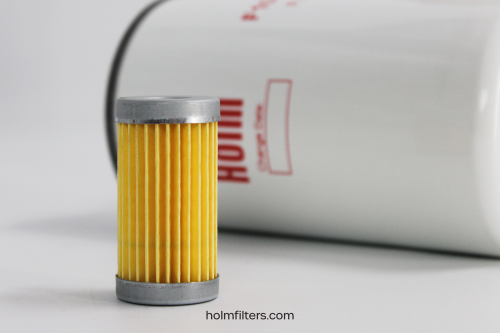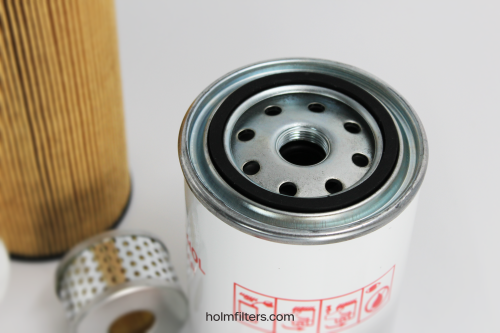Does the quality of a fuel filter matter?

It's a valid question that many people have. In the construction industry, fuel filters often need to be replaced every 500 hours. Understanding the purpose of fuel filters helps us understand why they need replacing so often and why their quality matters so much.
What do fuel filters do?
The most important function of a fuel filter is to act as a barrier. They trap and remove impurities from the fuel before it reaches the engine. These impurities include things like:
- dirt
- rust
- debris
- and even water
All these contaminants can wreak havoc on the engine by clogging injectors, damaging the fuel pump, and therefore reducing the overall performance of the machine. The damage that can occur from an ineffective or dirty fuel filter is very costly to rectify.
Why the quality of a fuel filter is so important?
Here's where it goes beyond just having any filter in place. A high-quality fuel filter offers several advantages:

Stronger, more durable materials: Cheap filters might use materials that can't withstand the pressure and heat of the fuel system, potentially bursting or leaking and allowing contaminants past the filter.

Finer filtering media: A quality filter uses finer media to capture even the smallest particles. This is crucial for modern engines with tighter tolerances and more sensitive fuel injection systems.

Superior seal: A well-made fuel filter will have a tight seal to prevent unfiltered fuel from bypassing the filter altogether. A leaky filter defeats the purpose and exposes your engine to harmful contaminants.
These quality aspects all contribute to a fuel filter's ability to effectively protect your engine and ensure optimal performance. By using a high-quality filter, you can help to:
- Prevent engine damage from contaminants
- Maintain good fuel efficiency by ensuring clean fuel reaches the engine
- Extend the life of your engine by protecting its delicate components
Understanding the critical role of fuel filters in equipment longevity is essential. By recognising the importance of quality, you're taking a proactive step in maintaining the machinery's health and efficiency. Remember, a small investment in a quality filter can yield significant returns in the long run.
Prioritise quality when choosing filters to maximise uptime and minimise costs.
